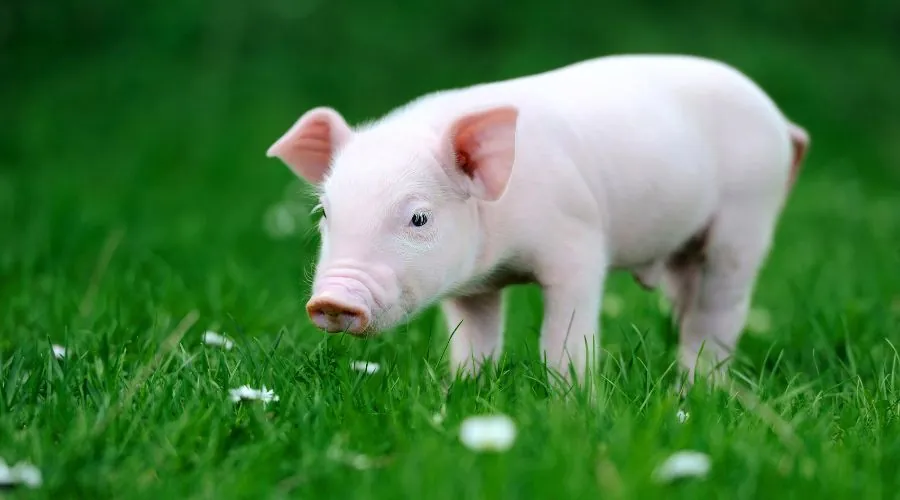Researchers have created pigs that are resistant to classical swine fever (CSF). When exposed to the virus, gene-edited pigs remained healthy, while unedited animals showed typical signs of disease, a study found.
The experts said that the genetic change provided complete protection against infection, with no observable impact on the animals’ health or development.
The work demonstrates that precise gene editing can prevent infection by disrupting a pig protein the virus relies on to make copies of itself within the cells of the pig, they added.
The findings offer a promising route to bolstering disease resilience in livestock.
Researchers from the University of Edinburgh’s Roslin Institute made a targeted change to a gene responsible for producing a protein called DNAJC14, which plays a critical role in the replication cycle of pestiviruses – the virus family that includes CSF.
Studies had previously shown that altering a single amino acid in this protein blocks the virus from processing its own proteins, preventing it from reproducing in pig cells.
Cells carrying the edited gene did not support replication of classical swine fever or other related pestiviruses found in pigs and cattle.
While CSF is not currently present in the UK, it continues to cause severe outbreaks in parts of the world, with major economic consequences for farmers. Existing vaccines can reduce transmission, but controlling the disease remains difficult due to its persistence and ability to spread between wild and domestic pigs.
‘Devastating disease for livestock and farmers’
The team, supported by Edinburgh Innovations – the university’s commercialisation service – said that gene editing could form part of a broader strategy for disease control in farmed animals, used alongside vaccination and biosecurity measures.
The same genetic edit could potentially be applied to other livestock species to guard against related viruses, including those affecting cattle and sheep.
The research is published in the journal Trends in Biotechnology in collaboration with colleagues from the Animal and Plant Health Agency (APHA), which provided the high containment laboratories, and the University of Lubeck, Germany.
The work was supported by animal genetics company Genus and by a UKRI BBSRC National Bioscience Research Infrastructure grant and facilitated by the Large Animal Research and Imaging Facility at the University of Edinburgh.
Dr Simon Lillico, research scientist at the Roslin Institute, said: “Our research highlights the growing potential of gene editing in livestock to improve animal health and support sustainable agriculture.
“While previous research had identified this protein’s role in cell cultures, translating that into living animals is a major step, and one that requires the infrastructure to breed, monitor, and safely test gene-edited livestock.
“Our Large Animal Research and Imaging Facility allows us to gene edit and assess a variety of livestock species, with colleagues at the Animal and Plant Health Agency providing expertise and biosecure facilities for this viral challenge.”
Helen Crooke, Mammalian Virology deputy leader at APHA, added: “These are very promising results. Cutting-edge tools like gene editing are showing the potential to play an important role in safeguarding animal health and welfare.
“Classical swine fever is a devastating disease for livestock and farmers, as we saw with the outbreak in the UK 25 years ago. Hopefully this breakthrough can help bolster the resilience of the livestock sector to the disease.”
Source - https://www.farmersguide.co.uk













